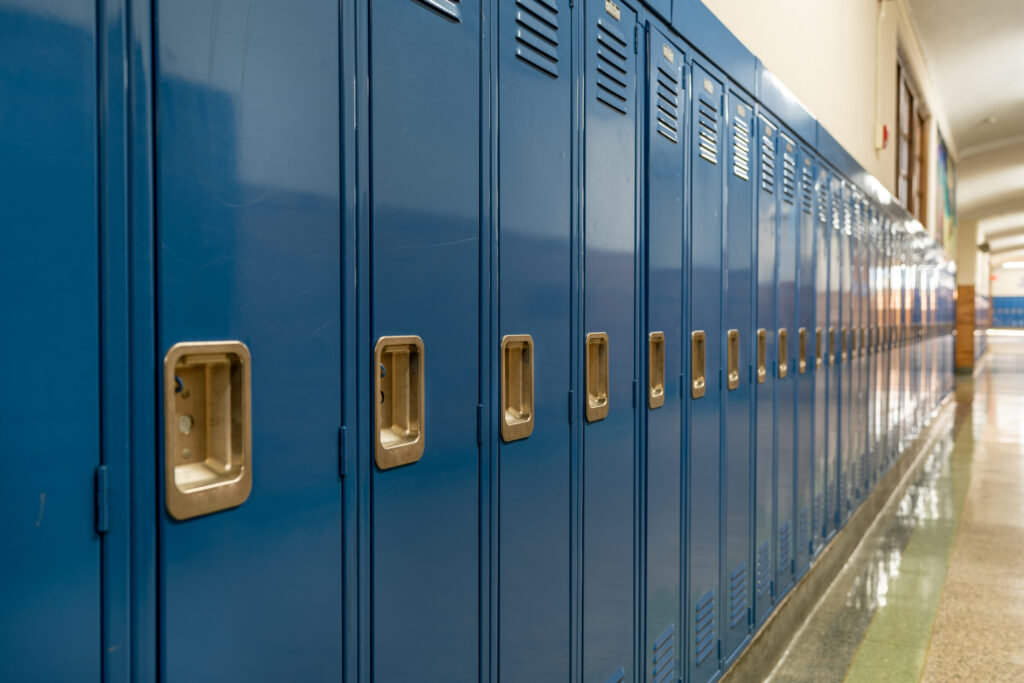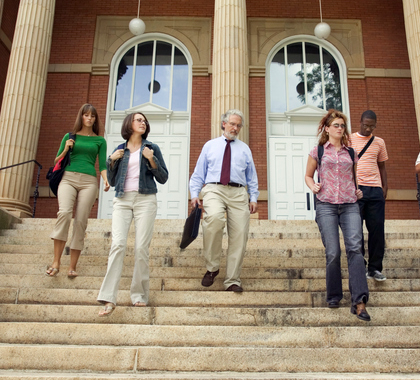Testimony Before the South Carolina Senate Education Conference Committee Regarding S 935
Tim Benson, Senior Policy Analyst
The Heartland Institute
June 15, 2022
Chairman Hembree and Members of the Conference Committee:
Thank you for holding this hearing on S 935, which would establish Education Scholarship Accounts, an education savings account (ESA) for low-income South Carolina students. Enacting this program would be an important step forward in advancing the goal of education choice for Palmetto State students and families.
My name is Tim Benson, and I am a policy analyst with The Heartland Institute. The Heartland Institute is a 37-year-old independent, national, nonprofit organization whose mission is to discover, develop, and promote free-market solutions to social and economic problems. Heartland is headquartered in Illinois and focuses on providing national, state, and local elected officials with reliable and timely research and analysis on important policy issues.
With an ESA, state education funds allocated for a child are placed in a parent-controlled savings account. Under the proposed program, parents could use a state-provided, restricted-use debit card to access education funds to pay for resources for their child’s unique educational program. The ESAs could be used to pay for tuition and fees at private and parochial schools, textbooks and curriculum materials, online courses, tutoring services, educational therapies, computer hardware, or transportation costs. They could also be used to cover the fees required to take national standardized achievement tests, such as the SAT or ACT, as well as entrance examinations, tuition, fees, and textbooks at postsecondary institutions.
Funding for each account would not exceed $5,000 per year and the program would be open to a cap of 5,000 students each year.
Space concerns should not be an issue. A 2018 survey of South Carolina private schools by EdChoice found these schools potentially have 20,000 open seats available across grades K–12, and 64 percent of the schools surveyed said they would likely participate in a universal ESA program, while 58 percent said they would be willing to participate in a similar low-income ESA program to the one being offered in S 395.[1] Only 5 percent of schools said they would not participate in an ESA program.[2] However, there is still large room for growth in the number of schools that would participate in an ESA program, as just over half responded they were “not familiar” or “not too familiar” with ESAs.[3]
Copious empirical research[4] on school choice programs[5] makes clear these programs offer families improved access to high-quality schools that meet their children’s unique needs and circumstances, and that these programs improve academic performance and attainment and deliver a quality education at lower cost than traditional public schools. Additionally, these programs benefit public school students and taxpayers by increasing competition, decreasing segregation, and improving civic values and practices.
Research also shows students at private schools are less likely than their public school peers to experience problems such as alcohol abuse, bullying, drug use, fighting, gang activity, racial tension, theft, vandalism, and weapon-based threats.[6] There is also a strong causal link suggesting private school choice programs improve the mental health of participating students.[7]
Further, South Carolina’s public schools are habitually failing the state’s children. In 2019, only 36 percent[8] of public school fourth-graders and 29 percent[9] of eighth-graders tested “proficient” to grade level in mathematics on the National Assessment of Educational Progress (NAEP) examination, colloquially known as the “Nation’s Report Card.” Just 32 percent[10] of fourth-graders and 29 percent[11] of eighth-graders did so in reading. Essentially, and embarrassingly, the state’s public schools cannot get 70 percent of South Carolina children to grade-level proficiency in reading and math.
It is probably these dismal results, and also because teacher unions have repeatedly played politics with school closings during the COVID-19 pandemic in direct conflict with students’ best interests, that education choice programs like ESAs are more popular with parents than ever before. Polling by EdChoice released in September 2021 found 78 percent support for ESAs, for example, among the general public and 84 percent among current school parents.[12] These findings are mirrored in the American Federation for Children’s eighth-annual National School Choice Poll, released in March 2022, which saw 77 percent support for ESA programs.[13]
Expanding access to education choice would be a monumental benefit to low-income South Carolina children. Education Scholarship Accounts would be the perfect complimentary program to the state’s Educational Credit for Exceptional Needs Children Fund tax-credit scholarship program, which recent research has shown to have saved South Carolina taxpayers between $62 million and $99.8 million through Fiscal Year 2018.[14] This works out to a savings of between $7,823 and $12,583 per each student participating in the program.[15]
The goal of public education in South Carolina today and in the years to come should be to allow all parents to choose which schools their children attend, require every school to compete for every student who walks through its doors, and make sure every child has the opportunity to attend a quality school. Establishing Education Scholarship Accounts is a logical step forward in meeting that goal. There has not been a time when providing these opportunities has been more urgent and more needed than right now.
Thank you for your time.
For more information about The Heartland Institute’s work, please visit our Web site at www.heartland.org or http:/news.heartland.org, or contact our Government Relations Department at 312/377-4000 or reach them by email at [email protected].
[1] Andrew D. Catt and Michael Shaw, Exploring South Carolina’s Private Education Sector, EdChoice, February 27, 2018, https://www.edchoice.org/wp-content/uploads/2018/02/Exploring-South-Carolinas-Private-Education-Sector-by-Andrew-Catt-and-Michael-Shaw.pdf#page=1.
[2] Ibid.
[3] Ibid.
[4] EdChoice, The 123’s of School Choice, April 14, 2021, https://www.edchoice.org/wp-content/uploads/2021/04/2021-123s-SlideShare_FINAL.pdf.
[5] Greg Forster, A Win-Win Solution: The Empirical Evidence on School Choice, EdChoice, May 18, 2016, http://www.edchoice.org/wp-content/uploads/2016/05/A-Win-Win-Solution-The-Empirical-Evidence-on-School-Choice.pdf.
[6] M. Danish Shakeel and Corey A. DeAngelis, “Can private schools improve school climate? Evidence from a nationally representative sample,” Journal of School Choice, Volume 12, Issue 3, August 8, 2018, https://www.tandfonline.com/doi/abs/10.1080/15582159.2018.1490383?scroll=top&needAccess=true&journalCode=wjsc20.
[7] Corey A. DeAngelis and Angela K. Dills, The Effects of School Choice on Mental Health, October 29, 2018, https://papers.ssrn.com/sol3/papers.cfm?abstract_id=3272550.
[9] “2019 Mathematics State Snapshot Report – South Carolina, Grade 8” Institute for Education Sciences, National Center for Education Statistics, U.S. Department of Education, https://nces.ed.gov/nationsreportcard/subject/publications/stt2019/pdf/2020013SC8.pdf.
[11] “2019 Reading State Snapshot Report – South Carolina, Grade 8,” Institute for Education Sciences, National Center for Education Statistics, U.S. Department of Education, https://nces.ed.gov/nationsreportcard/subject/publications/stt2019/pdf/2020014SC8.pdf.
[12] Andrew D. Catt, John Kristof, and Paul DiPerna, 2021 Schooling America Survey, EdChoice, September 2, 2021, https://www.edchoice.org/wp-content/uploads/2021/08/2021-Schooling-in-America-PROJECT.pdf.
[13] American Federation for Children, “New Poll: Invest in Education: Support for Ed Freedom Continues to Soar,” March 17, 2022, https://www.federationforchildren.org/new-poll-invest-in-education-support-for-ed-freedom-continues-to-soar/.
[14] Martin F. Lueken, Fiscal Effects of School Choice, EdChoice, November 11, 2021, https://www.edchoice.org/wp-content/uploads/2021/11/The-Fiscal-Effects-of-School-Choice-WEB-reduced.pdf.
[15] Ibid.



